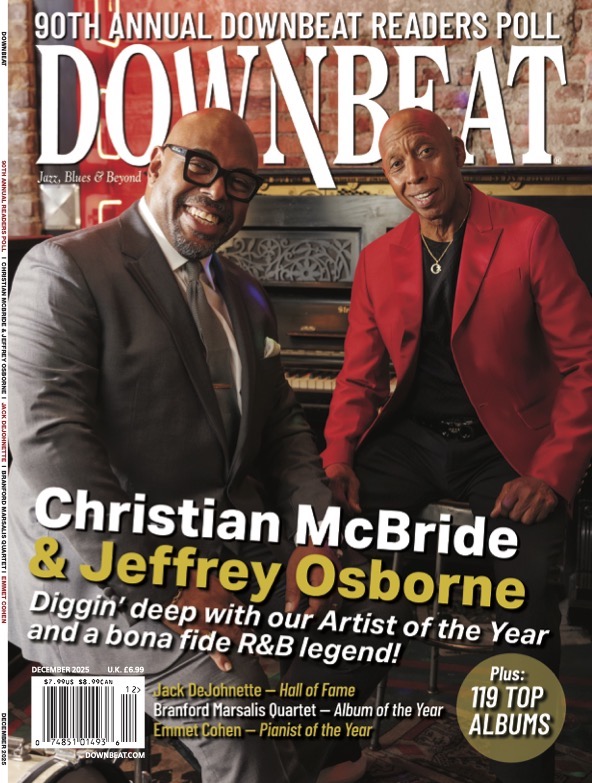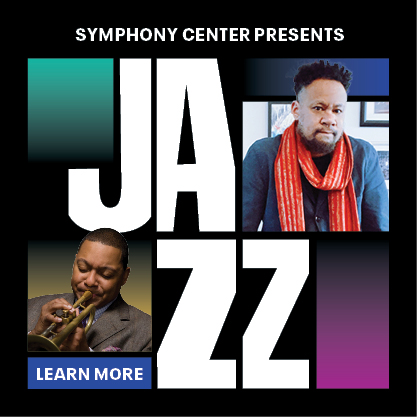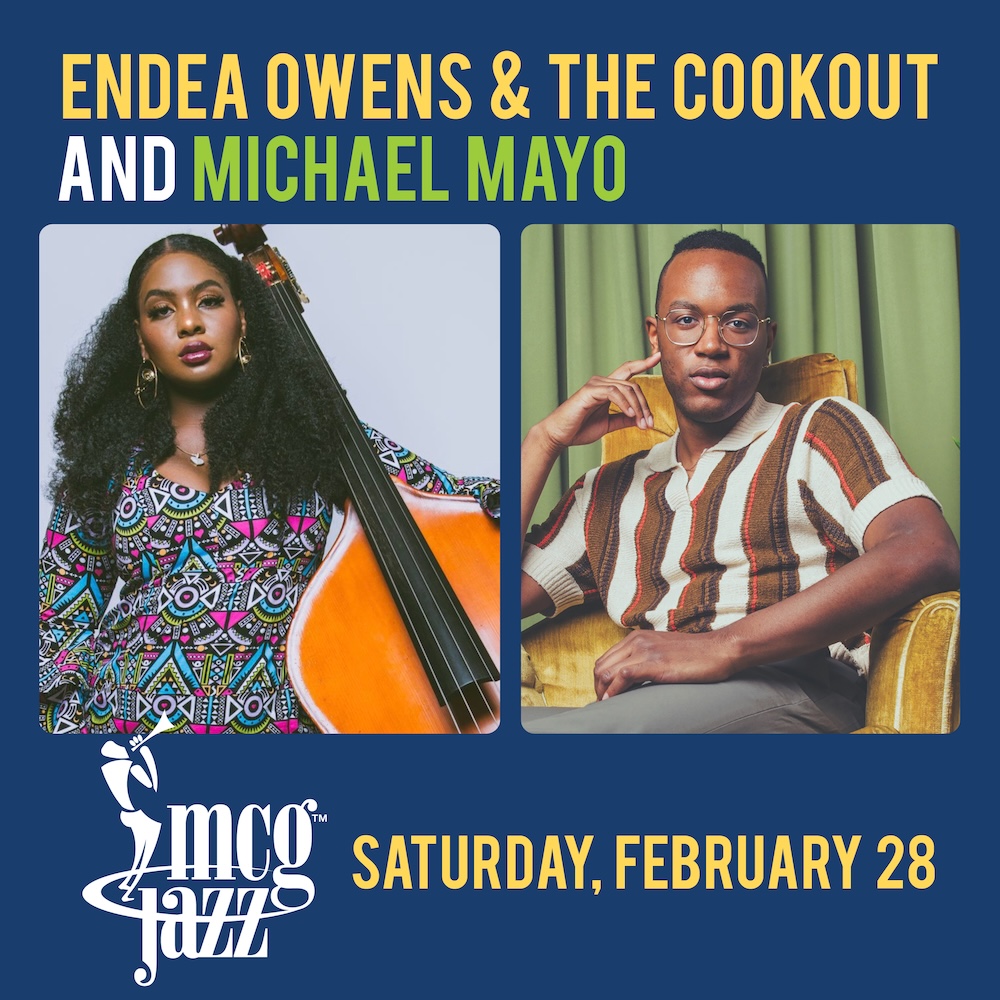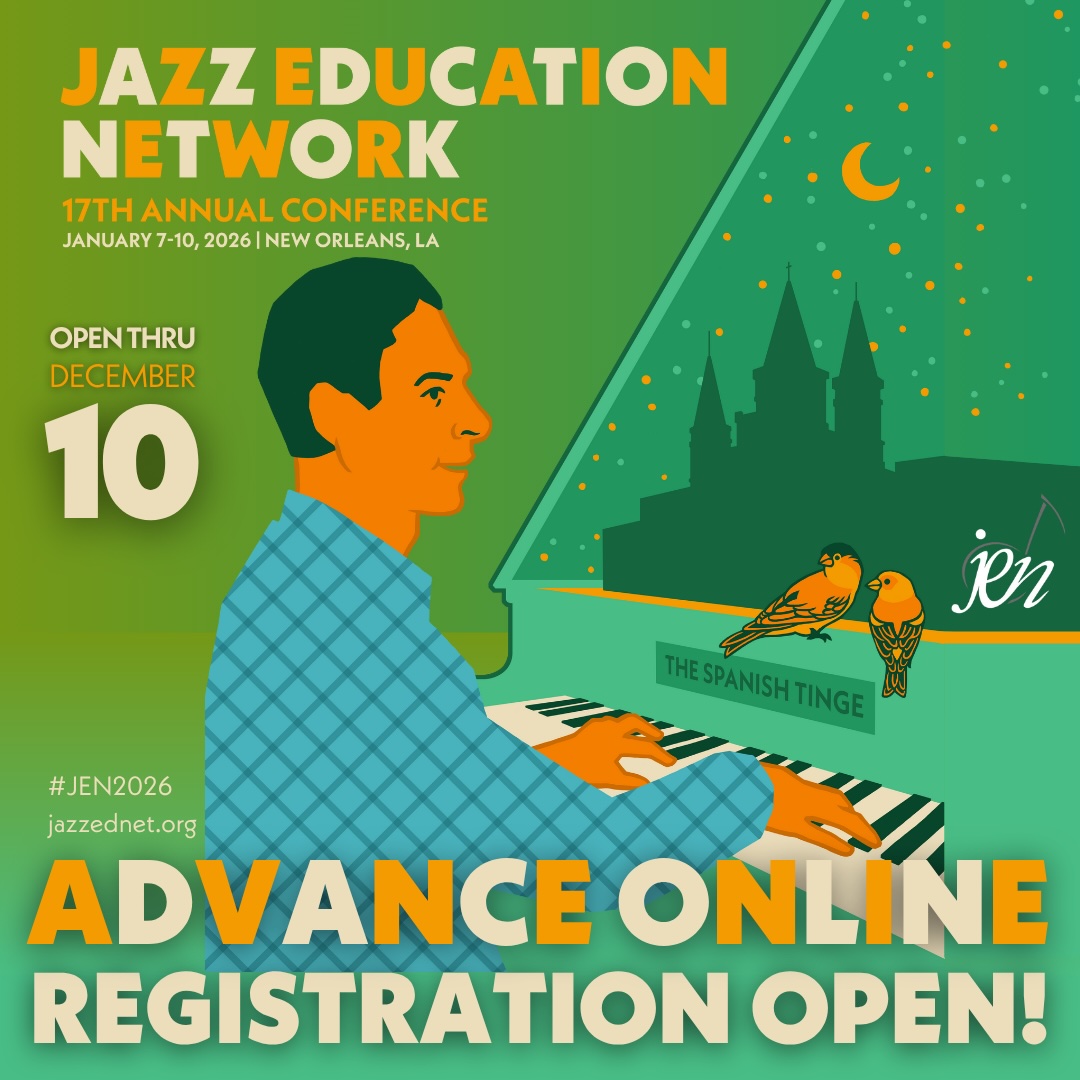Oct 28, 2025 10:47 AM
In Memoriam: Jack DeJohnette, 1942–2025
Jack DeJohnette, a bold and resourceful drummer and NEA Jazz Master who forged a unique vocabulary on the kit over his…
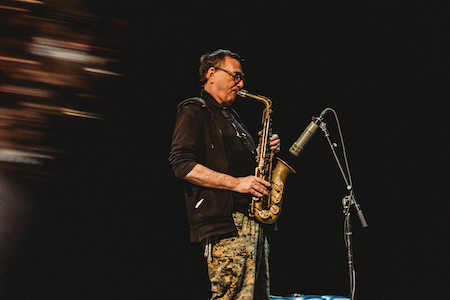
John Zorn has become Mr. Big Ears in the last two iterations of the festival.
(Photo: Cora Wagoner)On the opening evening of Knoxville’s four-day Big Ears Festival, which celebrated its 10th anniversary March 30 to April 2, singer Lonnie Holley made a confession to the audience. His strong voice, meditative but also hopeful and jubilant, buffeted by the band Mourning [A] BLKstar, he turned to the audience:
“We ain’t practiced none of this. I ain’t gonna lie to you. We’re bringing it to you raw; straight out the straw.”
While the groups at Big Ears — avant-garde leaning instrumental improvisation inside and far out of the jazz realm all the way to thrillingly uptempo bluegrass and singer-driven, rock-leaning bands — presented meticulously crafted sets, this element of rawness permeated the weekend. Big Ears welcomed more than 100 groups and musicians to downtown Knoxville, Tennessee — all thoughtful musicians and thinkers saying many of the same things in different formats.
To experience it all in a heady, back-to-back marathon of music is to be almost overwhelmed by creative expression. The prevailing feeling is inspiration and hope. Listeners bask in a creative aura where the possibilities of music as a force for change — in pushing a genre forward, in bringing a new voice to prominence, in introducing new political ideas — seems endless.
And in a college town situated in a deeply red state, overt politics were on display. For one of the closing sets on Sunday night, guitarist Marc Ribot y Los Cubanos Postizos took the stage dressed in wigs and pearls in protest of an anti-drag bill passed in the state that had only just been temporarily halted by a federal judge. In a genre-defying set on Friday highlighted by singer Thana Alexa’s chameleonic vocal abilities, Antonio Sánchez and his Bad Hombre group confronted listeners with songs built on hooks like, “Resistance is survival and love our salvation.” There were many more instances, both subtle and direct. Even the festival itself seemed — in this time, in this state — subversive. (This feeling likely would have been even more supercharged had the festival occurred after the expulsion of two Democratic members of the Tennessee legislature.)
Is Big Ears and the music changing Tennessee for the better? It’s hard to tell, but for four days, it felt like a political act.
Big Ears is also an atmosphere where everyone can have a thoroughly different experience. This is maddening because it’s physically impossible to hear all the music performed during the long weekend, but also thrilling because listeners can have deeply personal experiences that differ vastly. There are many different Big Ears paths, and listeners can spend a day, or even the entire weekend, seeing a very different festival.
Hewing to the jazz path, Joe Lovano ran through tunes on the first evening from the forthcoming ECM album Our Daily Bread with his Trio Tapestry, featuring pianist Marilyn Crispell and drummer Carmen Castaldi. Even when playing gruff and fast — or disconnected melodies of pinched off tones, branching into spindly, far-reaching phrases in a dialogue with Crispell’s piano — there’s an undercurrent of subtone to Lovano’s playing. It transforms his phrases into trailing whispers, like someone not wanting to end a sentence, trying to keep it afloat by getting quieter and quieter and hoping it stays afloat even after they run out of air. This approach makes the high notes, and when he blows with force, almost startling.
Lovano also appeared the next evening in the Tyshawn Sorey Trio, with the drummer leading a group that also included guitarist Bill Frisell. Here, Lovano deftly wove his voice, which seemed somehow punchier, into Frisell’s very distinct guitar language.
This is also the wonder of Big Ears: experiencing engrossing sets that put musicians in a variety of configurations. Guitarist Julian Lage performed Friday evening with his trio (bassist Jorge Roeder and drummer Dave King) backing the pop singer Margaret Glaspy. The band seemed to be having an incredible time energizing relatively simple tunes with short bursts of improvisation, raucous drumming and busy basslines.
Lage also appeared in the celebrations for John Zorn, who has in the last two iterations of the festival become Mr. Big Ears. In a secret show at midnight on Day 3 of the festival, Zorn and Lage showed off their close musical interplay, Zorn squealing a high note on his saxophone or burbling through a vertiginous run of notes while Lage picked off a blistering run of his own. At noon, the guitarist had started the day in a trio with Frisell and Gyan Riley casting a trancelike spell with the somewhat anachronistic sounds of Zorn’s guitar trio compositions. (The equally gorgeous sounds of Zorn’s Gnostic Trio kicked off Day 4).
Can there ever be a highlight in a festival filled with must-see shows? Tarbaby — the supergroup of pianist Orrin Evans, drummer Nasheet Waits (who shined elsewhere in the festival with Christian McBride’s New Jawn) and bassist Eric Revis — backing the superlative saxophonist David Murray came close. I don’t know if the standout from a phenomenal set of excitingly disorienting improvisation came during “O,” the band screaming the title amid blustering and increasingly complex improvisation, or Murray’s breathtaking phrasing of “Body And Soul.”
Then again, I can still hear Cécile McLorin Salvant’s crowd-pleasing, end-of-the-night take on “The Trolley Song,” ornamented with exclamatory phrases by the extraordinary pianist Sullivan Fortner. I also hold in my mind the feeling of William Parker’s “In Order To Survive,” an inspiring avant-garde call to action. Equally moving was Damon Locks’ rousing lyrics over trumpeter Rob Mazurek’s Exploding Star Orchestra, a collective bursting with talented musicians, and his duo collaboration with the trumpeter the next day. And how do I not mention drummer Andrew Cyrille and bassist Reggie Workman in performance with the dynamic pianist David Virelles? But what is a highlight in a festival constructed of awe-inspiring performances?
With a festival this packed, music really needs to run on time. Sound also seemed to be an issue more than in years past; the first tunes of a packed Sun Ra Orchestra set were marred by mic issues. These hiccups are likely to be expected at such a significant logistical undertaking.
Personal logistics are always an issue at Big Ears, especially with the venues spread out throughout downtown Knoxville. I was often with two thoughts: What magic would I have seen if I had gotten to a show 10 minutes earlier? What did I miss by leaving before the final tune of the set? The hardest part of Big Ears (other than being physically exhausted by the end of Day 4) is being OK with your version of the festival. Embracing the idea of not seeing everything and not having the same experience as everyone else is difficult at first. Let go and listen fully, I had to tell myself time and again. DB
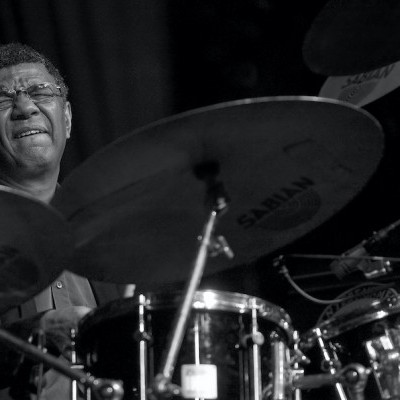
Jack DeJohnette boasted a musical resume that was as long as it was fearsome.
Oct 28, 2025 10:47 AM
Jack DeJohnette, a bold and resourceful drummer and NEA Jazz Master who forged a unique vocabulary on the kit over his…
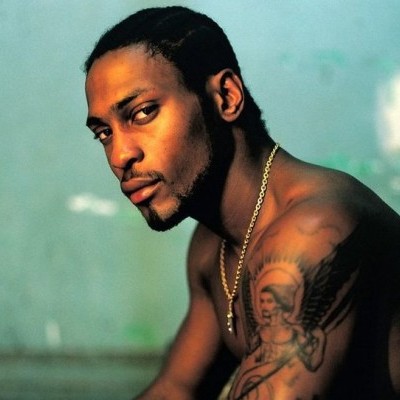
D’Angelo achieved commercial and critical success experimenting with a fusion of jazz, funk, soul, R&B and hip-hop.
Oct 14, 2025 1:47 PM
D’Angelo, a Grammy-winning R&B and neo-soul singer, guitarist and pianist who exerted a profound influence on 21st…
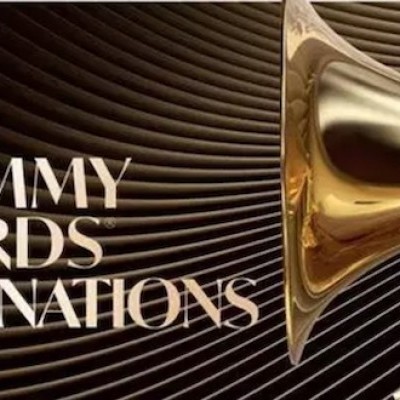
To see the complete list of nominations for the 2026 Grammy Awards, go to grammy.com.
Nov 11, 2025 12:35 PM
The nominations for the 2026 Grammy Awards are in, with plenty to smile about for the worlds of jazz, blues and beyond.…
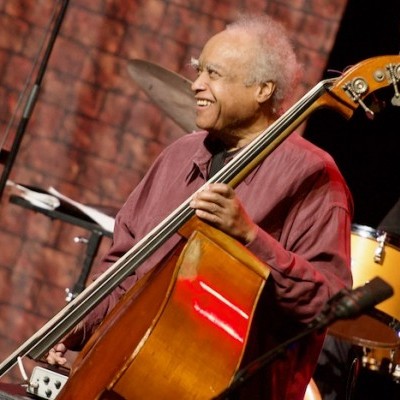
Drummond was cherished by generations of mainstream jazz listeners and bandleaders for his authoritative tonal presence, a defining quality of his style most apparent when he played his instrument unamplified.
Nov 4, 2025 11:39 AM
Ray Drummond, a first-call bassist who appeared on hundreds of albums as a sideman for some of the top names in jazz…
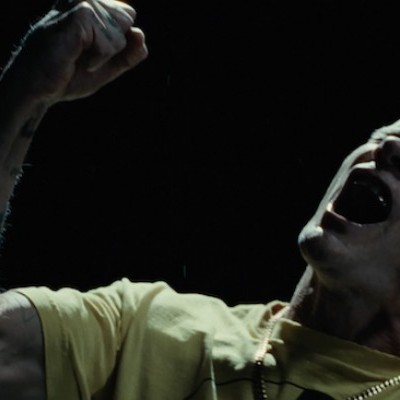
Flea has returned to his first instrument — the trumpet — and assembled a dream band of jazz musicians to record a new album.
Dec 2, 2025 2:01 AM
After a nearly five-decade career as one of his generation’s defining rock bassists, Flea has returned to his first…

